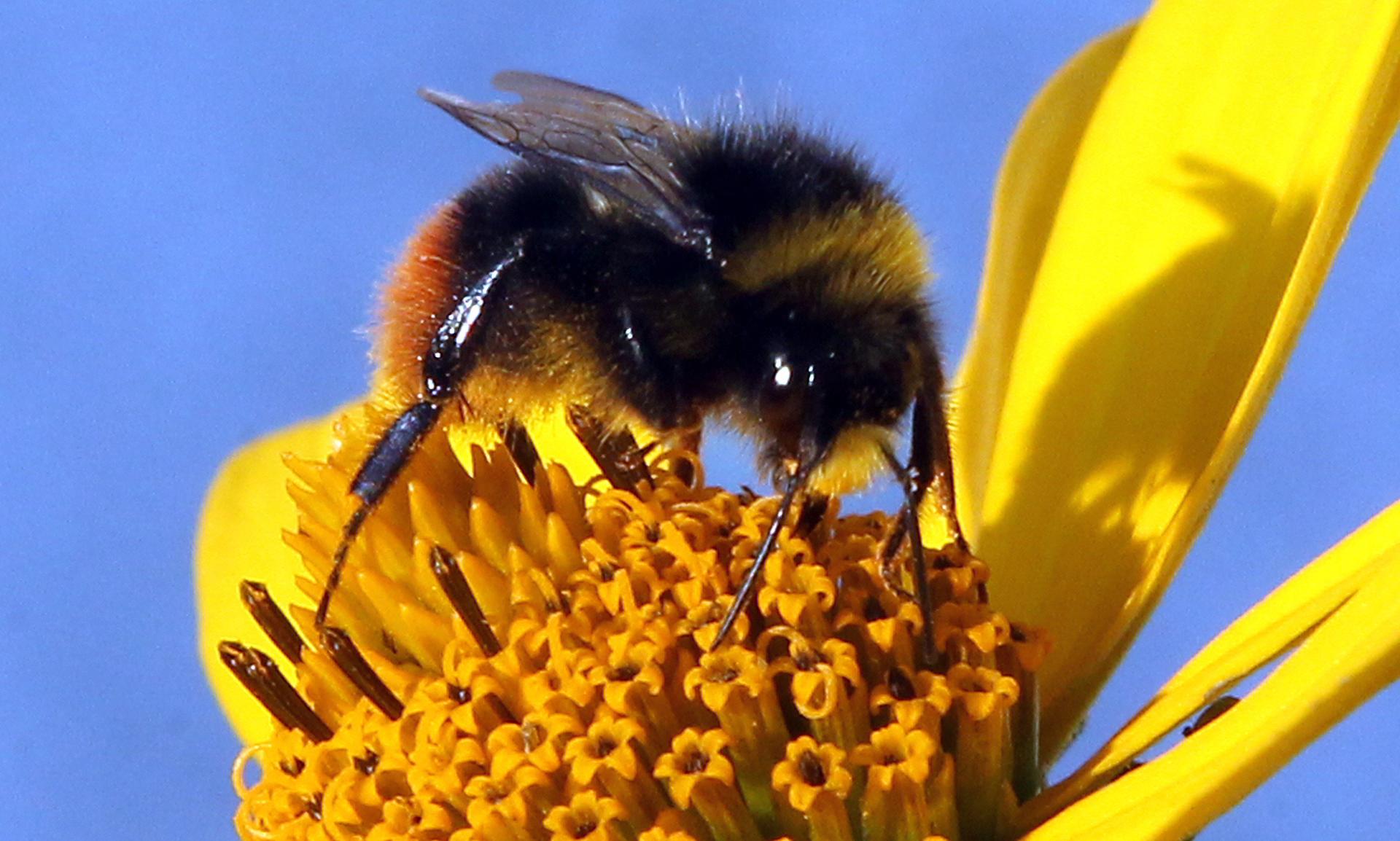Pesticides cause brain damage in bees, research says
Researchers found conical cells in common flowers that help bees stabilize themselves while pollinating.
Pesticides used in agriculture are causing brain damage in honeybees, a new pair of studies say. A study published in Nature Communications found that Neonicotinoid and coumaphos pesticides in a laboratory were found to target areas of bees’ brains involved in learning.
Another study, published in the Journal of Experimental Biology, shows 30 percent of bees failed memory tests after exposure to those same pesticides.
“These studies highlight potential dangers to pollinators of continued exposure to pesticides that target the insect nervous system and the importance of identifying combinations of pesticides that could profoundly impact pollinator survival,” Christopher Connolly, one of the researchers, told Bloomberg News in a statement.
More from GlobalPost: Monarch butterflies in Mexico at record low numbers
The research is being conducted because honey bees are currently facing a population collapse. While many have suspected pesticide use to be one of the likely causes, the agriculture industry, which profits off of pesticides, has naturally denied that they are responsible for the eco-disaster.
For example, Dr. Julian Little, the communications manager at Bayer Crop Science Limited, which makes pesticides, claimed that the lab studies don't mean much in the field. "If you take an insecticide and you give it directly to an insect, I can guarantee that you will have an effect – I am not at all surprised that this is what you will see," he told BBC News.
Every day, reporters and producers at The World are hard at work bringing you human-centered news from across the globe. But we can’t do it without you. We need your support to ensure we can continue this work for another year.
Make a gift today, and you’ll help us unlock a matching gift of $67,000!
